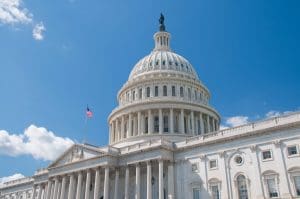The economic crisis caused by the coronavirus pandemic poses a triple challenge for tax policy in the United States. Lawmakers are tasked with crafting a policy response that will accelerate the economic recovery, reduce the mounting deficit, and protect the most vulnerable.
To assist lawmakers in navigating the challenge, and to help the American public understand the tax changes being proposed, the Tax Foundation’s Center for Federal Tax Policy modeled how 70 potential changes to the tax code would affect the U.S. economy, distribution of the tax burden, and federal revenue.
In tax policy there is an ever-present trade-off among how much revenue a tax will raise, who bears the burden of a tax, and what impact a tax will have on economic growth. Armed with the information in our new book, Options for Reforming America’s Tax Code 2.0, policymakers can debate the relative merits and trade-offs of each option to improve the tax code in a post-pandemic world.

Montana Adopts Individual and Corporate Income Tax Reform
Montana adopted structural reforms to both individual and corporate income taxes during the recently adjourned legislative session, enacting three bills reducing individual tax rates, simplifying the state’s individual tax system, repealing 16 tax credits, and changing the apportionment factor for corporate income tax.
5 min read
Less Should be MORE with Federal Cannabis Taxation
Federal lawmakers re-introduced the MORE Act, the most significant federal legislative development on marijuana policy in 50 years. The MORE Act would impose a federal excise tax on marijuana at a rate from 5 to 8 percent.
7 min read
Arizona Legislators Consider Lower, Flatter Income Tax
The income tax changes in HB 2900 as introduced would improve Arizona’s individual income tax structure and economic competitiveness, making the state more attractive to individuals and pass-through businesses .
8 min read
Oklahoma Passes Corporate and Individual Income Tax Reductions
Last Friday, Oklahoma Governor Kevin Stitt (R) signed House Bills 2960, 2962, and 2963 into law as part of a budget agreement, bringing the legislature’s tax plans across the finish line. These bills will reduce the state’s corporate and individual income tax rates beginning in tax year 2022.
3 min read
Tax Foundation Webinar Recaps the Complexities of the 2021 Tax Filing Season
During the pandemic, economic relief administered through the tax code exploded as Congress passed nearly $6 trillion of legislation into law. That left the 2021 tax filing season, which ended May 17, with complications that still linger.
4 min read
CBO Report on R&D and Tax Policy in the Pharmaceutical Industry
In a new report, the Congressional Budget Office (CBO) analyzes federal policies that influence R&D spending in the pharmaceutical industry. The report highlights how taxes affect R&D investment incentives, underscoring the importance of structuring the tax code so that it is not biased against investment.
4 min read
Two Important Issues that Must Be Resolved in “Global Tax Reform”
If the U.S. is suggesting a 15 percent effective rate as the minimum acceptable rate for a global agreement, then the tax bases of the various minimum taxes adopted as part of the agreement should be aligned to minimize complexities and unintended consequences.
5 min read
Tax Policy Ideas in the Republican Study Committee Budget
While much of the tax policy now under debate aims to increase the tax burden on businesses, several policies in the newly released Republican Study Committee (RSC) budget for Fiscal Year 2022 focus on reducing the tax code’s barriers to investment and saving.
3 min read
GILTI by Country Is Not as Simple as it Seems
If policymakers want a recipe to dramatically expand the complexity of U.S. international tax rules and the burden on U.S. multinational businesses, then a tax on foreign earnings calculated at the country level would be the way to do it. Alternatively, policymakers could focus on mitigating the unintended consequences of GILTI and other recent international tax rules.
5 min read
How Biden’s Corporate Tax Increases Could Make Tax Enforcement Harder
If Biden wants to reduce tax evasion, raising the corporate rate, increasing the incentives to engage in tax evasion, and creating a larger tax advantage to becoming a pass-through business is counterproductive.
3 min read